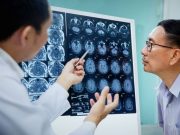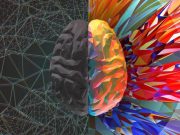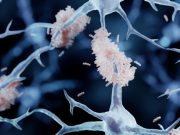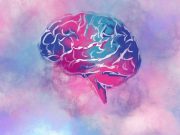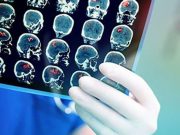Tag: Brain
Network Reorganization Compensates for Post-COVID Neural Deficits
Patients with post-COVID condition have greater brain activation across the network, lesser deactivation in default mode regions
High Blood Pressure in Young Adulthood Tied to Worse Later Brain Health
AAN: Teriflunomide Reduces Clinical Events in Radiologically Isolated Syndrome
Significant reduction seen in clinical events with teriflunomide; nonsignificant reduction noted in Gd+ lesions, new or enlarging T2 lesions
Unilateral Pallidal Ultrasound Ablation Beneficial in Parkinson Disease
Authors note a significantly reduced levodopa-induced dyskinesia and motor severity score opposite to the treated side
Infant Screen Use Linked to Alterations in Cortical EEG Before Age 2
Link between infant screen time, executive functioning at school age partially mediated by frontocentral and parietal theta/beta ratios
Social Media Checking Behaviors in Teens Linked to Brain Changes
Teens with habitual social media checking behaviors showed lower neural sensitivity to social anticipation in amygdala, other areas
PET Changes Similar for Alzheimer Disease, Down Syndrome
No difference seen in global PET amyloid burden between asymptomatic with Down syndrome, asymptomatic mutation carriers
Bacteria From Oral Cavity ID’d in Brain Abscess Without Clear Cause
Brain abscesses where no primary source of infection identified have higher counts of Streptococcus anginosus
RSNA: Overweight Tied to Worse Brain Health in Preteens
Findings include worse brain white matter microstructural integrity, reduced cortical grey matter thickness, and decreased functional connectivity
Racial, Ethnic Disparities Seen in Cerebrovascular Disease in Midlife
Brain aging more pronounced in late life in Latinx and White adults, while brain aging begins in midlife in Black adults




